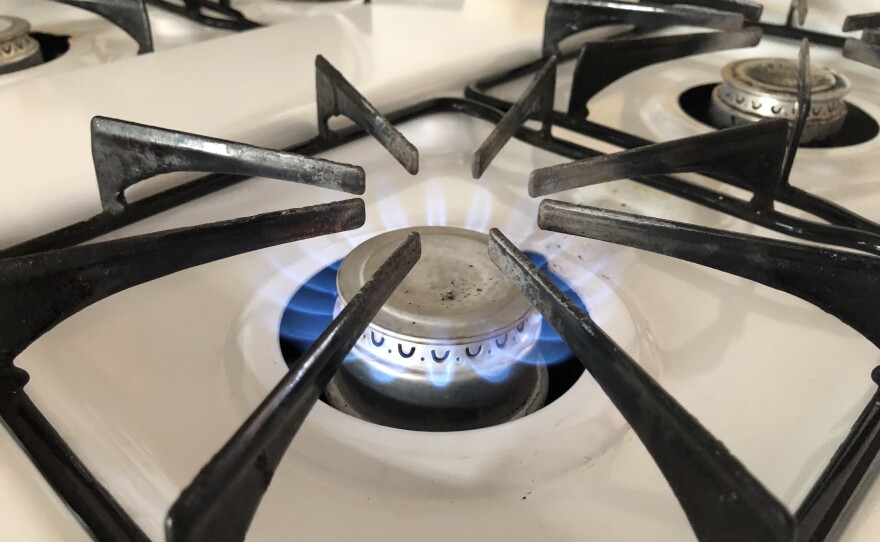In the march toward net zero emissions, perhaps no fossil fuel will be harder to break away from than natural gas. It has been an essential part of everything from home heating and powering appliances to industrial manufacturing. So, San Diego Gas & Electric is proposing an experiment to reduce the carbon footprint of natural gas by blending it with hydrogen.
Hydrogen is not an energy source but it is an energy carrier when mixed with oxygen in a fuel cell. Speaking on KPBS Midday Edition, The San Diego Union-Tribune Energy Reporter Rob Nikolewski recounted an experiment involving 100 homes in England using blended hydrogen and natural gas which saved about 27 tons of carbon emissions. SDG&E is proposing a similar experiment on a section of pipeline feeding a dormitory at UC San Diego. Nikolewski said reducing emissions by blending hydrogen in natural gas pipelines would be especially helpful for “hard to de-carbonize” industries, such as steel and cement manufacturing.
Critics of the proposal include environmental groups including the Sierra Club and Earthjustice. Nikolewski said their major complaint is that natural gas, as a fossil fuel, has no place in achieving a climate-stable future.
"Unlike California’s strategies to deploy heat pumps at scale, burning hydrogen blends in residential and commercial buildings is likely incompatible with California meeting its climate goals while minimizing household energy burdens and achieving federal air quality standards," the Sierra Club and Earthjustice wrote in a protest to SDG&E's application to the CPUC. "The Commission should not force ratepayers to fund this $35.26 million set of experiments."
SDG&E will present three blended hydrogen and natural gas experimental projects for approval before the California Public Utilities Commission. If approved, the experiment at UC San Diego would run 18 months with results expected at the end of 2026.







